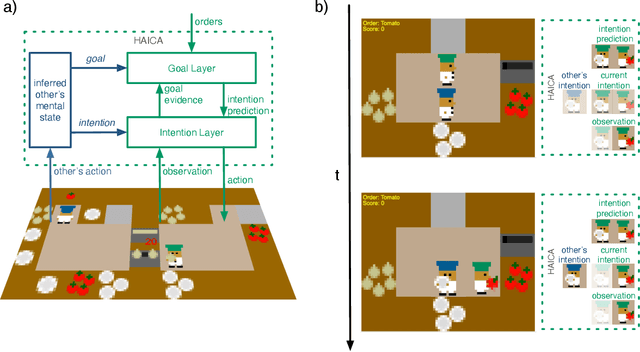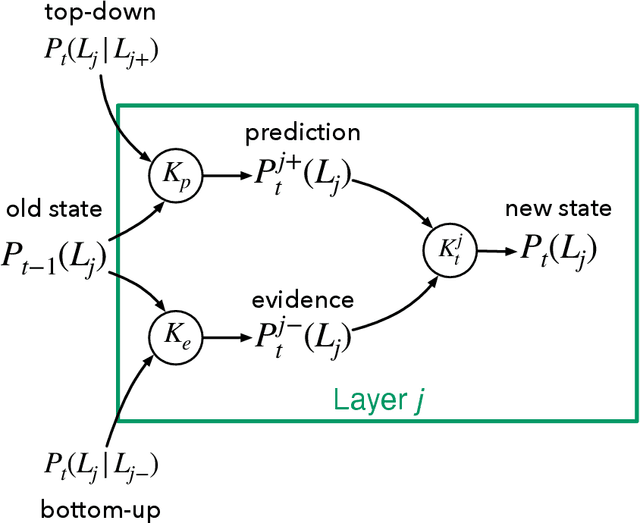Jan Pöppel
Resonating Minds -- Emergent Collaboration Through Hierarchical Active Inference
Dec 02, 2021



Abstract:Working together on complex collaborative tasks requires agents to coordinate their actions. Doing this explicitly or completely prior to the actual interaction is not always possible nor sufficient. Agents also need to continuously understand the current actions of others and quickly adapt their own behavior appropriately. Here we investigate how efficient, automatic coordination processes at the level of mental states (intentions, goals), which we call belief resonance, can lead to collaborative situated problem-solving. We present a model of hierarchical active inference for collaborative agents (HAICA). It combines efficient Bayesian Theory of Mind processes with a perception-action system based on predictive processing and active inference. Belief resonance is realized by letting the inferred mental states of one agent influence another agent's predictive beliefs about its own goals and intentions. This way, the inferred mental states influence the agent's own task behavior without explicit collaborative reasoning. We implement and evaluate this model in the Overcooked domain, in which two agents with varying degrees of belief resonance team up to fulfill meal orders. Our results demonstrate that agents based on HAICA achieve a team performance comparable to recent state of the art approaches, while incurring much lower computational costs. We also show that belief resonance is especially beneficial in settings were the agents have asymmetric knowledge about the environment. The results indicate that belief resonance and active inference allow for quick and efficient agent coordination, and thus can serve as a building block for collaborative cognitive agents.
Satisficing Mentalizing: Bayesian Models of Theory of Mind Reasoning in Scenarios with Different Uncertainties
Sep 23, 2019



Abstract:The ability to interpret the mental state of another agent based on its behavior, also called Theory of Mind (ToM), is crucial for humans in any kind of social interaction. Artificial systems, such as intelligent assistants, would also greatly benefit from such mentalizing capabilities. However, humans and systems alike are bound by limitations in their available computational resources. This raises the need for satisficing mentalizing, reconciling accuracy and efficiency in mental state inference that is good enough for a given situation. In this paper, we present different Bayesian models of ToM reasoning and evaluate them based on actual human behavior data that were generated under different kinds of uncertainties. We propose a Switching approach that combines specialized models, embodying simplifying presumptions, in order to achieve a more statisficing mentalizing compared to a Full Bayesian ToM model.
 Add to Chrome
Add to Chrome Add to Firefox
Add to Firefox Add to Edge
Add to Edge